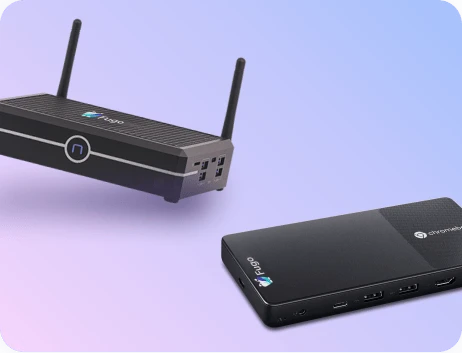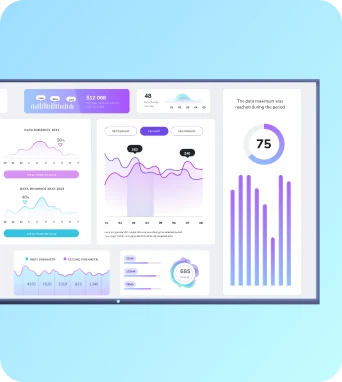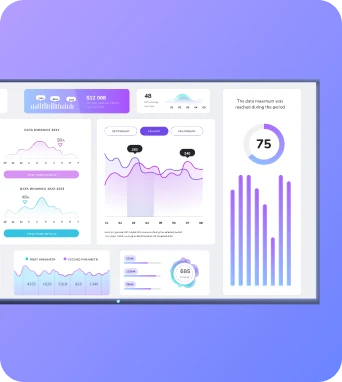
Going Remote: Shift Show or Sh*t Show?
For many, moving from office work to remote work hasn’t been so much of a shift as it has been an all out scramble 😳. A collective “wtf” moment shared by scores of newly remote teams across the globe.
That makes sense. With so many people jumping into virtual collaboration for the first time under Covid-19’s long shadow, there was bound to be a learning curve. Trip ups are expected when you have to hit the ground running. Things get awkward.
In classic spoof fashion, SNL nailed the Zoom call.
Fugo has always been a distributed team, with our workforce spread out between countries, doing a combination of work-from-home and work-from-the-office routines. So as remote work veterans, we’re well aware of the challenges now faced by the novice organization, manager, and employee. Below, we’re sharing lessons learned and best practices for keeping a team engaged and productive in this new work regime 💪
Internal Communication: Rules of Engagement
This is not a list of requirements, but rather a general philosophy, gleaned from experience, that governs how we do the one thing that affects everything else we do as a distributed team: communicate.
- You can’t not talk. Let’s get that out of the way. As you’ll see, allowing a wide berth with communication flows can be beneficial, but the communication must still flow. And everyone needs to participate.
- Most communications are asynchronous, not real-time. That’s good. It’s okay not to hear back from a coworker immediately, especially if you’ve asked for their thoughts or assigned a new task. Giving meaningful discussions the time they need to develop and unfold will result in better, more considered contributions from your team.
- Chat is nice, but writing is key. Writing solidifies. Decisions and workflows begin and end with an exchange of complete thoughts, not always best suited to the off-the-cuff back and forth of a verbal conversation. Calls and meetings can be great for bouncing ideas, but what was said gets forgotten. If it’s important or fundamental, write it down, don’t just chat it up.
- "Right now" may not be the best time to say what just popped into your head. A better practice may be to let your thought shape itself through the filter of time. What's left at the end is usually the bit worth saying. So, make a note of it, have a think, and then release it upon your coworkers after some consideration.
- If you want to know something, ask! Full time remote work has a way of creating teams of lone wolves. We’re occasionally guilty of this ourselves here at Fugo. Even with the most brilliant teams, people may have lots to say, but volunteer little. The best way to find out the answer to a question is to ask it. It may sound obvious, but constraints like time and distance and uncertainty about interrupting a coworker can sometimes deter us from reaching out to colleagues who would probably be happy to share their thoughts!
- Leave space for questions at the end of difficult conversations. If something is going to be hard to hear or share, make sure to open the conversation up for questions. That goes for verbal and written communications. And it’s especially important now as precarious futures may leave us having more difficult conversations than we’re used to. Speak kindly, and leave room for airing questions and concerns.
- Don’t write at the wrong time. Especially not something time sensitive. Assigning a task at 5 pm might keep someone at work past their normal sign off time. Sharing on a Sunday afternoon may pull people back in on the weekend. A message sent Friday evening or early Monday morning might get lost. There’s probably not a perfect time, but there are definitely wrong times. Keep that in mind when you hit send.
- In the same vein, let your teammates know when the right time is. No one wants to be intentionally disruptive or intentionally avoidant. Catching people at the wrong time can be avoided if your team is on the same page about when each other is generally available.
- Break free from the green dot. Status is a feature of many modern communication work tools. It’s generally color coded for presence and absence: green if present, red if absent, or some such variation. This is how many organizations keep tabs on who’s working when. But the truth is, there aren't many good reasons to know if someone is available or away at any given moment. Write if you need something. If they respond right away - great, you’ve got what you need! If not, they’re most likely just busy, not ignoring. As long as you can reasonably assume they are focused on their own work, respect the red dot!
- Keep meetings predictable, consistent, and minimal. Remote workers, especially first time ones, may feel a bit paranoid about communicating. Not hearing from a manager all week may leave them wondering about their job. Hearing too often may leave them feeling micromanaged and disrupted. Establishing a consistent cadence of communications removes these anxieties. Your team may work best with morning and evening check-ins that bookend the day (like us here at Fugo.) Maybe a couple times a week is enough. The point is, meetings are most productive when your team knows what to expect from them.
Virtual Collaboration: Tools For Teams
The demand for virtual collaboration tools has skyrocketed in the last decade. And now that remote work may be here to stay, the uptick will only continue 📈
There are hundreds of tools to choose from. A lot of companies make the mistake of having too many tools just for tools’ sake. What’s important is finding and keeping up with the ones that offer real value to your team. Here’s a quick list of some that make our cut:
Task Management & Planning
Trello is an intuitive kanban planning app that lets you fully customize the boards you create. It works by setting up lists using cards, like post-it notes, on a layout that looks like a high-tech bulletin board. Cards can be labeled with assignment details, such as the person responsible, due date, and a task description. An activity sidebar tracks every change made to the board, so everybody on the team can see what the current needs and completed tasks are.

Why we love it: It’s intuitive, fun, easy for everybody on our team; great if you don’t need a heavy duty project management tool. Plus, it feels soooo good to archive a card 😎
Aptly named, Weekdone is a weekly reporting and OKR software that helps companies keep a pulse on their teams through setting goals and tracking progress. Teams can use it for planning their week’s work on an individual basis while linking their tasks up with overarching company objectives. Besides just weekly tasks and OKR progress, you can customize your dashboard to track things like job satisfaction, backlogs of work, challenges, and lessons your team learned along the way.

Why we love it: It’s been a great tool for our remote team to structure our week and stay focused on getting the right things done rather than just creating the appearance of being busy. Plus, the way individual, team, and company objectives are aligned brings into view how each person contributes to Fugo’s overall direction 👍🏽
Video Conferencing & Recording
While Zoom is definitely having its heyday at the moment, there are other alternatives out there for video conferencing. The two we use most frequently are Whereby and Google Meet. Both are easy to use and have all the collaboration tools you'll need to conduct productive meetings, like screen sharing, file sharing, and G Suite integration. Plus with Whereby we have extra flexibility to record our meetings for any team members MIA and open our Trello boards.

Loom is another favorite video messaging tool. For things like onboarding new employees, troubleshooting user problems, doing code reviews, or explaining complex workflows, Loom rescues teams like ours from lengthy back and forth messaging. In less time than it takes to type out an email, you can record your screen, voice (even face, for the brave 😉) into one easily shareable video.

Team Building
When most people hear “workplace communication” they probably think of top down director-to manager-to employee communication flows. But what about lateral team member communication?
How employees communicate with each other isn’t just important for company culture, it’s really important for productivity too! The Donut app for Slack matches up teammates for a virtual get-to-know-you call (to be had over very real coffees, lunch breaks, or home living room happy hours 🍸)

Know Your Team describes itself as “software that helps managers become better leaders.” You can use it for basic employee management tasks like scheduling 1-on-1 meetings and sharing progress. But the coolest feature is that it can be programmed to ask your team social questions like “What was your favorite band 10 years ago?” once a week, helping people find surprising connections with each other and maybe grow a little closer.
If it sounds like forced water cooler talk, worry not - employees can also chime in with their own suggested questions to make it more relevant to your team 👥

If you need a little help tuning out distracting websites while you work, the Freedom.tu app does just that. Beyond keeping you focused on work, it’s also a great tool for building healthier digital habits in general 🌱 Right now we can all probably afford to sign out and sign off a little more. Freedom.to works on Mac, Windows, Android, iOS, or Chrome.

A New Opportunity?
Working remotely is categorically not the same as working centrally, and should not be treated as such. If you found yourself having meetings all day at the office, now is a great time not to have those meetings. Write things up, disseminate information that way. Allow your team to absorb and contribute on their own time. Introduce some new tools 🧰. Improve how you communicate.
Ultimately, we believe this upheaval can be viewed as an opportunity ✨ If you are simply trying to simulate your office, you’ll not only set yourself and your team up for failure, but you’ll also miss out on an opportunity to learn a new skill. Working remotely is a skill. Being able to do the same work in a new way is a skill.
If you equip your team with the right tools and expectations, everyone will come out of this having learned something new. And perhaps, you’ll have found that having a new path to the same destination has made your company more resilient. Adaptation is a super power, so get remote work right and you may find that not only does it work, it may even offer you valuable new avenues 🙏



